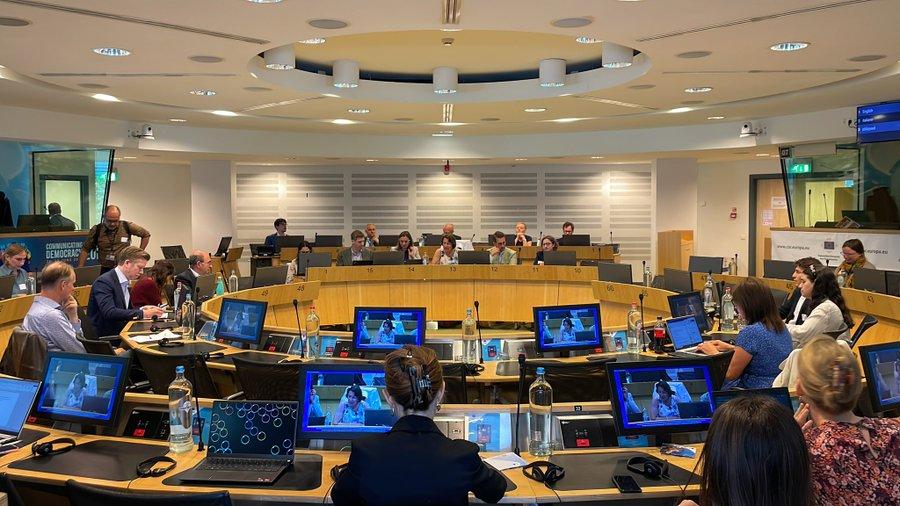
On Thursday 6 July, the European Committee of the Regions’ Interregional Group on Health and Wellbeing (CoR IRGHW) had its summer meeting in Brussels, focused on discussing the proposal for reforming EU pharmaceutical legislation, commonly referred to as the pharma package. In April 2023, the European Commission adopted a proposal for a new Directive and a new Regulation, which revise and replace the existing general pharmaceutical legislation. Find more information, documents, and the latest updates on the reform of EU pharmaceutical legislation here.
For the occasion of this IRGHW meeting, Lilia Luchianov and Antonios Rodiadis, Policy Officers at DG SANTE, European Commission presented the legislative package and on behalf of the European Commission, enlightening the audience with a detailed explanation of how the proposal is structured and what its intended goals are. The overall political objective is to create a Single Market of medicines in the EU ensuring access, availability, affordability, competitive regulatory framework of medicines, while checking environmental sustainability and combatting AMR. Among many other provisions, the proposal contains measures to improve equal access to medicines across the EU, with a tailored system aiming to reward pharmaceutical companies for addressing unmet health needs, for example, six months extra regulatory protection (e.g. protection of their clinical trial data, effectiveness and quality data). There are specific criteria classifying what “unmet medical needs” are, for instance, all orphan medicines would be considered to fall within this category. The rationality is to move from a “one size fits all” system to a more targeted approach.
To facilitate a true multi-level dialogue, we had also invited guest speakers representing local/regional stakeholders affected by the pharma package. Dag Håkansson, Senior Policy Advisor, Department of Economy and Governance at SALAR – Swedish Association of Local Authorities and Regions shared their perspective. They believe the proposal focuses more on creating and introducing new medicines rather than providing access and affordability, warning that access and affordability could be overshadowed by availability provisions. Christine Erzberger, Policy Officer, Ministry of Social Affairs, Health and Integration, Representation of the State of Baden-Württemberg (GE) to the EU told us about her region’s priorities. Baden-Württemberg is home to a total of 88 pharmaceutical companies, so the region is following the development of the Pharma Package closely. Three aspects of the legislation have been particularly appreciated by the region: first, the need for up-to-date legislation that fits today’s market and challenges; second, the improvement of EU-wide access to innovative pharmaceuticals to avoid supply bottlenecks and combat antimicrobial resistance; third, the reduction from 400 to 180 days of the assessment phase, that will save time for companies and patients.
The next meeting of the CoR IRGHW will take place on 11 October during the European Week of Regions and Cities. More information will be announced soon!


